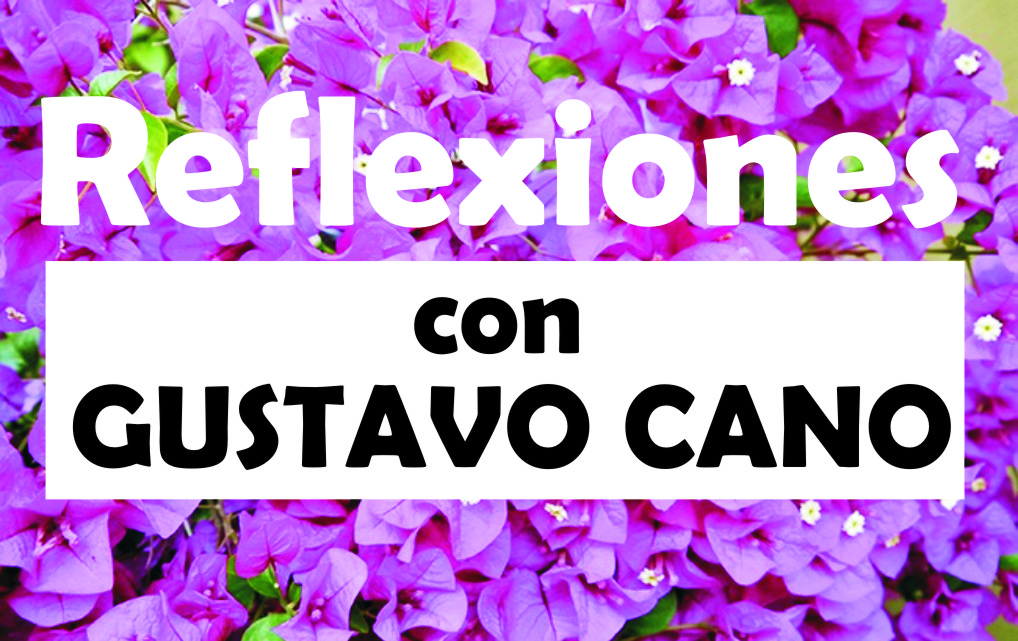EL RINCON DE EDWIN.Cosechando frutos de las semillas del pasado. Harvesting fruits of the seeds of the past.

| Cosechamos los frutos de las semillas del pasado.(Versión en Español). Basta con sembrar una sola semilla de naranja, para que crezca un naranjo que producirá en unos años, dependiendo de la variedad, una gran cantidad de naranjas durante varias generaciones. Es natural que la semilla que fue sembrada un día, germine y se transforme en una planta que luego de una cantidad de años, dé frutos en abundancia. Situación real de este mundo. Hay semillas que caen en el suelo, germinan y surgen plantas sin control; mientras que por otra parte, hay plantas que reciben un cuidadoso cultivo y fertilización controlada. De la forma en que se cultiva cada planta, desde la preparación del terreno, pasando por la siembra de la semilla y el cultivo de la planta a lo largo de todo su ciclo de vida, dependerá la calidad y cantidad de fruto que se obtenga. Los seres humanos, como entes de la naturaleza, también estamos sujetos al ciclo natural de la vida; procedemos de la madre tierra. “Memento homo, quia pulvis est et in pulverem reverteris –recuerda hombre, que polvo eres y polvo volverás a ser-“, palabras que además de estar plasmadas en diferentes lugares y que se nos empeña en recordar cada Miércoles de Ceniza en la tradición cristiana, también se encuentran escritas a la entrada del Cementerio General de la Villa de Chiantla en Huehuetenango, Guatemala. De forma similar a una planta, cada ser humano nace de una mujer, que cual fértil terreno, idealmente debiera tener una cuidadosa preparación desde su infancia, para que las plantas que de ella surjan, crezcan con lozana belleza y a su madurez, den bellos frutos en abundancia. Ello implica también el cultivo de dicha planta, sus hijitos, quienes deberán ser sujetos de muchísimos cuidados, especialmente durante los primeros seis o siete años. Tales cuidados implican un rigoroso y constante riego de agua de amor, esencialmente por parte de la madre y complementariamente por el amor del padre. Sin embargo, se deberá tener especial cuidado con las amenazas de los elementos de la naturaleza, así como oportunamente podar los malos brotes o ramas que a veces quedan dañadas. De no ser así, se tendrá una planta de la cual, no precisamente se esperará los mejores frutos, sino malos frutos que serán cosechados, también en abundancia. ¿Qué puede esperarse entonces de una planta que ha nacido en tierra hostil, crecida en medio del abandono, entre un ambiente agresivo, sin poca o ninguna fertilización, con escasez de agua de amor o sin ella? Lo más seguro, frutos horrorosos y en abundancia. Los seres humanos, brindan a la sociedad la abundancia de sus frutos, aproximadamente luego de quince o veinte años. Los frutos de las semillas plantadas no se cosechan de inmediato. El promedio generacional es de aproximadamente veinte años. No es vana la sabiduría antigua al establecer el sistema vigesimal. Si bien es cierto, los fenómenos sociales son muy complejos, es decir, existen muchos factores que constituyen causas de las consecuencias posteriores; uno de ellos reside en el cuidado de los niños del ayer que son los adultos de hoy. Y aún más, en los jóvenes del ayer, padres de los adultos de hoy (recordemos las condiciones sociales de una generación atrás: guerras, conflictos, abusos, agresión, odio y violencia –esperemos lo mismo pero aumentado-). Aunque no todo es malo, afortunadamente. Sin embargo, hoy las sociedades del mundo están sumidas en un estado de violencia desaforada, donde la mayoría de crímenes obedecen a motivos amorosos o ambiciones financieras, aunque no faltan otros sentimientos negativos como la envidia. Homicidios, asesinatos, fraudes, robos, asaltos, búsqueda y apropiación de los fondos públicos, desorden institucional, venganzas y tantas cosas negativas que nos aquejan, todo entrelazado en un círculo donde no se sabe quién fue primero, si la gallina o el huevo. Estamos cosechando los abundantes frutos de las plantas que fueron sembradas en el pasado. Se espera que alguien haga algo para corregir la situación actual. Muchos consideran que deben ser los Estados del mundo o las religiones. Pero me pregunto ¿Quiénes son los líderes mundiales que desarrollan los procesos políticos en el mundo? ¿No son acaso los padres del pasado o las plantas del presente? ¿No es acaso ingenuo solicitar al mismo árbol que se corte a sí mismo y desaparezca de la faz de la tierra? En todos los ámbitos hay plantas que surgieron del mal cultivo, aunque hay abundantes excepciones. Considero que debemos esperar que las naturaleza haga su trabajo a través del natural ciclo de vida, mientras que en el presente, las sociedades actuales deberán iniciar con una renovación del nuevo terreno (son ellos los niños y especialmente las niñas –futuras madres-), nuevas semillas y la revisión de los métodos de cultivo de las nuevas plantas (regadas con abundante amor y sin abandono de sus madres) que darán abundantes frutos durante la siguiente generación, ya que durante la nuestra, simplemente debemos cosechar los abundantes frutos de las semillas y plantas cultivadas con indolencia en el pasado. Agradeceré mucho sus comentarios | We are harvesting the fruits of the seeds of the past.(English version). Sufficient is to plant a single orange seed, to grow an orange tree that will produce several years later, it depends on the variety, a lot of oranges for several generations. It is natural that the seed that was planted one day, be sprout and turn into a plant that after a number of years bears fruit in abundance. This is the real situation of this world. There are seeds that fall on the ground, germinate and emerge and turn into plants out of control; while on the other hand, there are plants that are under conditions of cultivation and fertilization carefully controlled. The way in which each plant is grown, from land preparation through planting of the seed and the cultivation of the plant throughout its life cycle will determine the quality and quantity of fruit to be obtained. Human beings, as entities of the nature, are also subject to the natural cycle of life. We come from the mother earth. "Memento homo, quia est et in pulverem pulvis reverteris" (let remember man that you are dust and to dust you shall to be return), words that in addition to be reflected in different places, insist on reminding to everyone of us, at the Christian Churches every Ash Wednesday and are also written to the entrance of the general cemetery of the town of Chiantla in Huehuetenango, Guatemala. Similar to a plant, each human being is born of a woman, that as fertile soil, ideally should have a careful preparation since childhood, so that the plants that emerge from it, grow with lush beauty and at its maturity, give high quality fruits in abundance. This also implies the cultivation of the plant, their babies, who should be subject to a lot of care, especially during the first six or seven years in their life. Those cares involves a rigorous irrigation of water of love constantly, mainly by the mother and additionally, with the love of the father. However, it must be especially carefulness with the threats of the elements of nature, and timely pruning of bad outbreaks or branches that are sometimes damaged. Otherwise, will be obtained a plant that not will give exactly the best fruits expected; instead of this, bad fruits will be harvested, also in abundance. What do we expect then from a plant that was born in hostile land, grown in the middle of the abandonment, including an aggressive environment, lack of water, without little or nothing of fertilization or without love? The safest course, we will get an enormous amount of horrific fruit. Human beings, provide to the society abundance of their fruits, more less fifteen or twenty years after. The fruits of seeds planted are not harvested immediately. Intergenerational average is approximately of twenty years. The ancient Mayan wisdom is not vain to establish the system based on the twenty number. Although, social phenomena are very complex, in other words, exist many factors that constitutes causes of the later consequences; one of them reside on the care of the yesterday’s children that are the today’s adults. And yet more, reside on the care of the youth of yesterday, that are the parents of the adults of today (let’s remember the social conditions of one generation before, with wars, conflicts, abuses, aggression, odium and violence – we will wait the same, but increased -). Although, not entire situation is bad, fortunately. However, today the world's societies are mired in a state of lawless violence, where most of crimes are motivated for passional emotions or financial ambitions, although there are other negative feelings such as envy. Homicides, murders, frauds, thefts, assaults, search and seizure of public funds, institutional disorder, revenge and so many negative things that affect us all intertwined in a circle where no one knows who came first the chicken or the egg. We are harvesting the rich fruits of plants that were planted in the past. It is expected someone to do something to correct the current situation. Many consider that must be the governments of the world's countries or religions. But I wonder: Who are the world leaders that develop political processes in the world? Are not the parents of past or plants emerged from them? Is not it naive to ask the same tree that is cut himself and disappears from the face of the earth? In all areas there are plants that emerged from the bad crop; although there are numerous exceptions. I think we should expect that nature do its own work through the natural cycle of life, whereas in the present, modern societies must begin with a renewal of new ground (they are the children and especially, girls, future mothers) new seeds and the revision of methods of cultivation of new plants (watered with abundant love and without neglect of their mothers) to give abundant fruits in the next generation. While, to our own generation, we just have to harvest the abundant fruits of the seeds cultivated plants with neglect in the past. Your comments will be well appreciated |
| Edwin Rocael Cardona Ambrosio 17 de abril de 2010 | |
Etiquetas: causas violencia, ethics, etica, moral, solucion violencia, violence causes, violence solution



 Nuevos servicios de medicina y cirugía estética
Nuevos servicios de medicina y cirugía estética Presente en los momentos más importantes de tu vida
Presente en los momentos más importantes de tu vida Desde 1967 Gracias por tu preferencia
Desde 1967 Gracias por tu preferencia Pensamiento del Gerente de Cano Recinos
Pensamiento del Gerente de Cano Recinos Sistemas computarizados para las MIPYMES de América Central
Sistemas computarizados para las MIPYMES de América Central

0 comentarios:
Publicar un comentario
Envíenos sus comentarios. Los comentarios que contengan expresiones soeces o fuera de lugar serán eliminados por nuestro equipo de moderación. Rogamos incluir su nombre y correo electrónico.
Suscribirse a Enviar comentarios [Atom]
<< Inicio